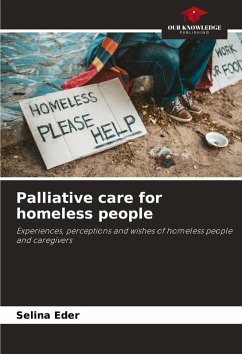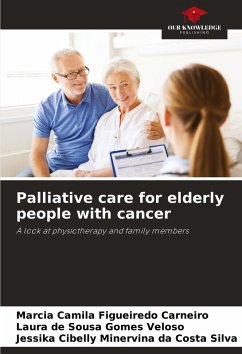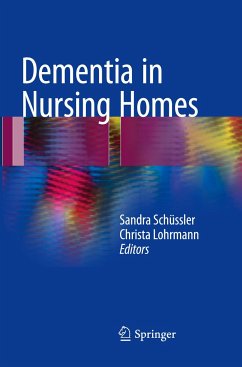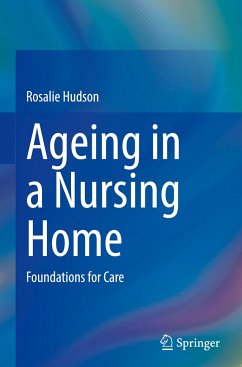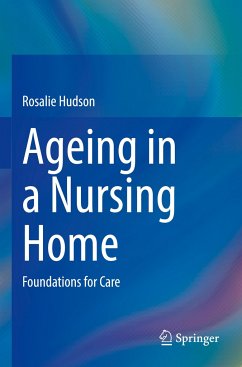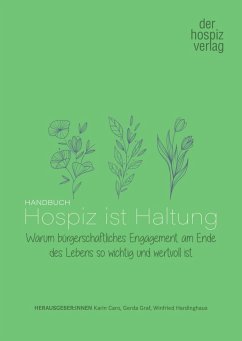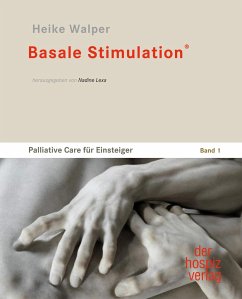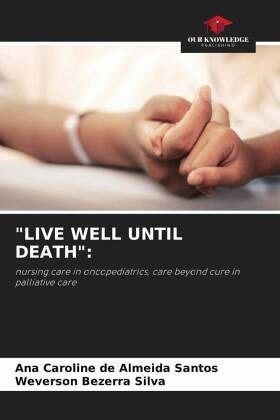
"LIVE WELL UNTIL DEATH":
nursing care in oncopediatrics, care beyond cure in palliative care
Versandkostenfrei!
Versandfertig in 6-10 Tagen
29,99 €
inkl. MwSt.

PAYBACK Punkte
15 °P sammeln!
The World Health Organization defines palliative care as the total and active care provided to a patient whose illness no longer responds to curative treatments and when control of pain and other psychological, social, and spiritual symptoms become a priority. The role of the nurse in palliative care starts from the moment of the news to the family and patient, to the moment of support provided to the family in grief. The child with cancer faces a treatment process that takes a considerable length of hospitalization, especially in the initial part of the treatment, where they are submitted to ...
The World Health Organization defines palliative care as the total and active care provided to a patient whose illness no longer responds to curative treatments and when control of pain and other psychological, social, and spiritual symptoms become a priority. The role of the nurse in palliative care starts from the moment of the news to the family and patient, to the moment of support provided to the family in grief. The child with cancer faces a treatment process that takes a considerable length of hospitalization, especially in the initial part of the treatment, where they are submitted to procedures that are often invasive and painful, such as the side effects of chemotherapy. Thus, the present study aimed to describe the main nursing care for children with cancer in palliative treatment. The methodology used was bibliographic and descriptive, being carried out by means of 30 scientific articles published in the Scielo and Lilacs databases, in Portuguese, in which the references were published in the period from 2009 to 2018, having a time cut of 09 years.



